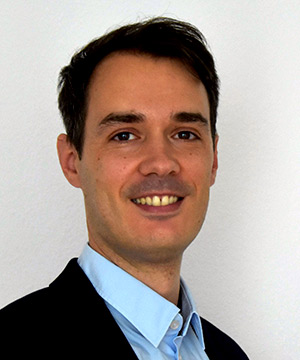Intestinal stem cell plasticity in western-style diet induced colon cancer development
Background
Although the incidence of colon cancer in elderly decreased over the last decades, more and more young people are diagnosed with cancer of the digestive tract. This is likely related to a generational difference in dietary habits, namely the consumption of “Western-style diets” (WSD) characterised by high abundance of fat and low abundance of fibre, vitamins and methyl donors like folate and vitamin B12.
There are several reasons why WSD increases the risk to develop colon cancer among them changes in the composition of the intestinal microbiome and an increase in the number of pathogenic bacteria which produce genotoxic metabolites.
Furthermore, WSD causes mild but steady intestinal inflammation which itself can cause DNA damage and mutations in intestinal epithelial cells. The targets of tumour initiating mutations are intestinal stem cells (ISCs) as they continuously divide to produce new daughter cells, necessary to maintain intestinal tissue integrity.
Recently, it was discovered that WSD activates alternative intestinal stem cells (aISCs) from pools of quiescent (non-dividing), more committed intestinal epithelial cells, which start to proliferate and gain stem cell capacity in a process called dedifferentiation.
Hence, WSD does not only establish a mutagenic environment in the intestine but also increases the pool of target cells for cancer-initiating mutations, which we think is another main reason why WSD predisposes to intestinal cancer.
Hence, we want to investigate how WSD mediates the activation of aISCs. Of note, acute inflammation is a potent inducer of dedifferentiation and activates similar aISC types as WSD. As WSD consumption is accompanied by intestinal inflammation, we assume that inflammatory signals play a key role for the activation of aISCs by WSD.
Aims and objectives
In our proposal we will investigate which WSD-related factors activate aISCs and particularly focus on inflammatory signals as inducer of dedifferentiation.
By identifying the signals that activate aISCs, we aim to reveal druggable targets to inhibit the activation of aISCs by WSD and to counteract the expansion of cellular targets for tumour-initiating mutations.
How it will be done
We will use genetically modified mice in which we can monitor the stem cell capacity of aISCs. These mice will be fed with control or Western-style diets and we will perform time course experiments in which we will analyse upon which time of feeding aISCs become activated.
Furthermore, we will investigate which WSD mediated intracellular alterations (at a transcriptional and epigenetic level) lead to the activation of stem cell programs in quiescent stem cells. Simultaneously, we will characterise quantitative and qualitative alterations of inflammatory cells in the intestinal microenvironment.
In this way we aim to identify candidate signals responsible for the activation of aISCs. We will test whether an inhibition of those signals can block activation of aISCs and therefore counteract the generation of new target cells for cancer-initiating mutations by WSD.
Potential impact
The identification of signals responsible for the activation of aISCs in the context of WSD will help to develop new preventative and therapeutic approaches to counteract Western-style diet related intestinal cancer development.
We’re delighted to have been awarded with this WCRF grant to study early western-style diet driven cellular alterations in the intestinal stem cell niche. This enables us to investigate whether western-style dietary habits augment colon cancer risk already at very early stages by activating quiescent intestinal stem cells, thereby increasing the pool of target cells for cancer initiating mutations.
Dr Mark Schmitt
